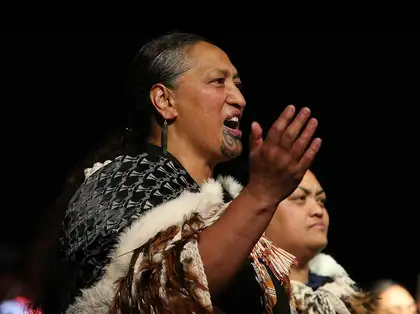Helping you thrive
At Massey we are committed to fostering and promoting Māori success by creating an environment where Māori students can flourish.
Te angitū o te Māori
E ū ana mātau ki te poipoi me te whakatairanga i te angitū o te Māori mā te whakarite taiao ako e puāwai ai ngā tauira Māori.
Learn from our leaders
Our Māori professors and academics are leaders, from Māori visual arts to public health.
Ngā mātanga i roto i ā rātau mahi
He mātanga ō mātou ahorangi Māori, ō mātou pūkenga Māori hoki nō te ao toi Māori atu ki te ao hauora.
Overview
Ko Te Kunenga ki Pūrehuroa te kaupapa e tū ngātahi ai tātou hei waihanga i ngā momo mātauranga ki te pae o angitu. He ara putanga tauira, he ara e hua ai ngā tini kaupapa ki Aotearoa puta noa i te ao whānui.
Māori knowledge is unique to Aotearoa New Zealand. It's the foundation upon which we stand together in partnership. Creating and sharing knowledge helps us reach the highest possible levels of advancement and attainment. It provides a pathway for students to learn te reo Māori, and create a just and inclusive society and world.
The study of Māori knowledge introduces you to te ao Māori, the Māori world, and provides a basic understanding of te reo Māori. It gives you a sound background in areas such as:
- contemporary Māori issues
- Te Tiriti o Waitangi
- Māori culture and society
- Māori policy and development.
Māori knowledge is a good fit if you:
- enjoy learning te reo Māori
- want to deeply understand Māori culture, society and world views
- want to contribute positively to individuals, whānau, hapū, iwi and Māori communities.
Study te reo Māori
Te reo Māori is a taonga and an official language of Aotearoa New Zealand. Study te reo Māori at Massey and participate in ways that reinforce the everyday use of te reo.
With our te reo Māori courses, you'll become a confident speaker and writer of te reo Māori – and be able to share your skills in ways that express and reflect a Māori world view.
Our staff include winners of the Pikihuia Awards for Māori writers, and lecturers dedicated to providing creative learning experiences.
Learn and use Māori knowledge
Massey offers many ways to build skills and understanding in Māori culture, te reo Māori and Te Tiriti o Waitangi.
You can major in Māori studies or te reo Māori in arts degrees offered by Te Pūtahi-a-Toi, Massey's School of Māori Knowledge. Or you can explore Māori knowledge in relation to business, creative arts, health, humanities and social sciences, or sciences.
Bachelor of Health Science – BHlthSc
Massey's Bachelor of Health Science (BHlthSc) is your gateway to making a meaningful impact in health care.
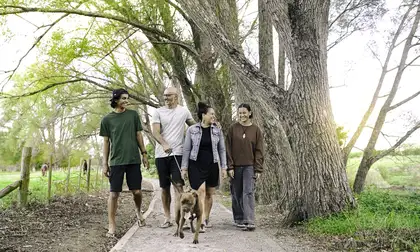
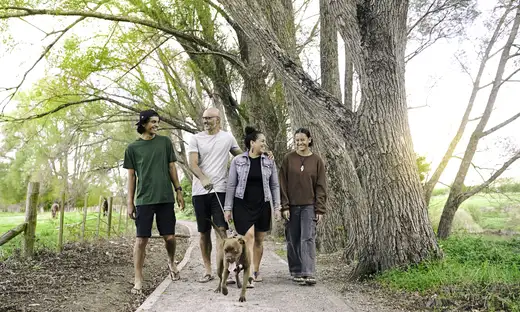
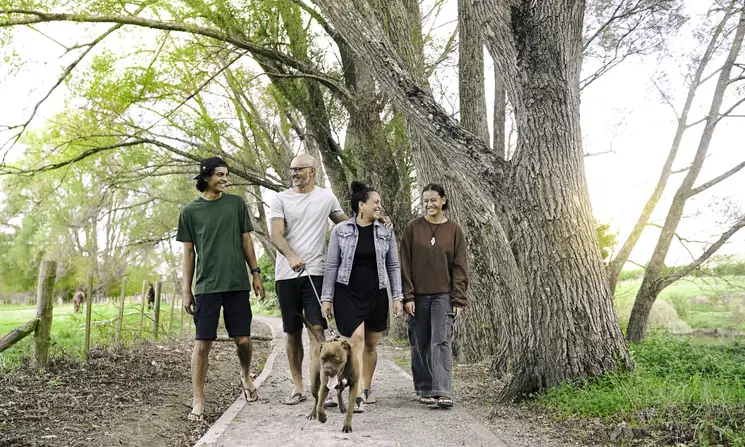
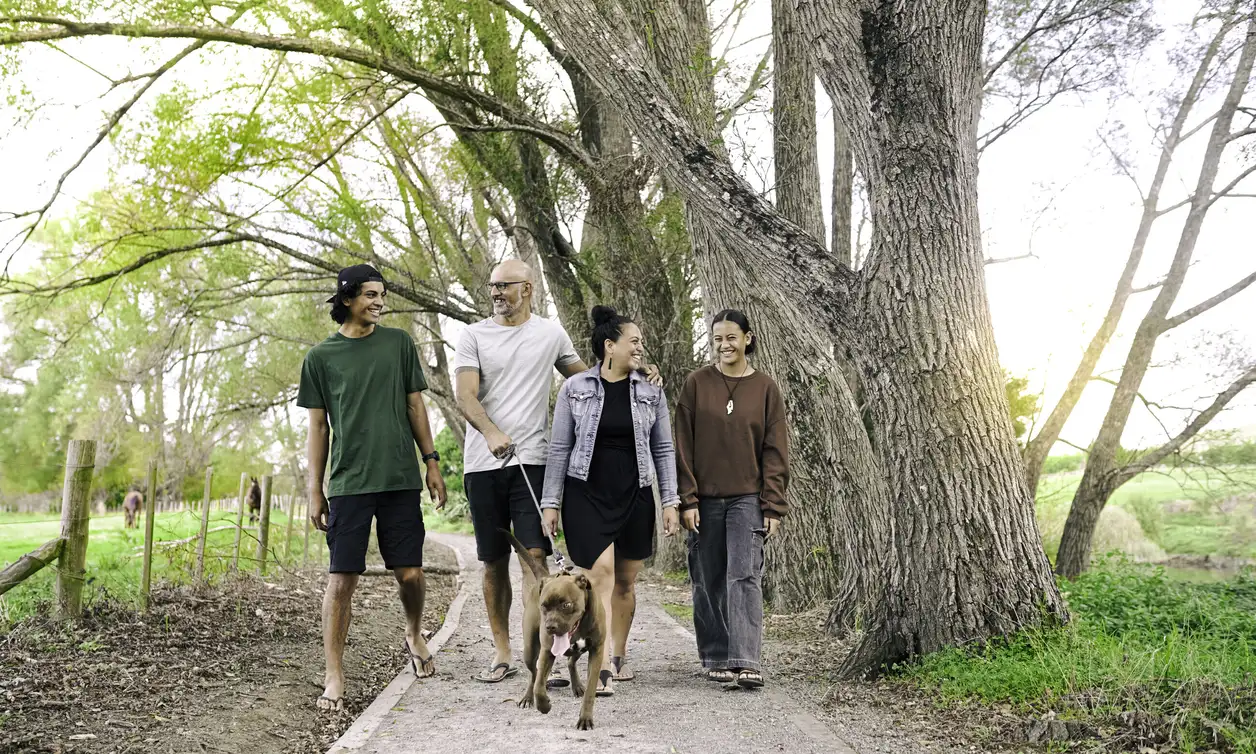
Pakihi – Business
Pakihi – Business
Te Au Rangahau is a research centre in the Massey Business School. The name translates to "a pathway to Māori research in business". The centre aims to advance business and leadership knowledge that benefits the Māori economy.
Toi – Creative arts
Toi – Creative arts
Toioho ki Āpiti, Māori visual arts, recognises language, culture, tikanga and art as inseparable. Our bachelor's degree has a strong Māori kaupapa, with te reo, tikanga, and manaakitanga at its core.
We welcome students of Māori, Pākehā and international indigenous heritage. We cater for all levels of te reo Māori.
As well as independent creative work, courses may cover:
- Māori design processes, including cultural significance
- Māori visual culture, including contemporary and traditional contexts
- te reo Māori
- Te Tiriti o Waitangi (Treaty of Waitangi).
Hauora – Health
Hauora – Health
For qualifications such as health science, nursing and social work, specialists from Te Pūtahi-a-Toi teach courses on:
- engaging with Māori
- hauora (Māori health and wellbeing)
- Te Tiriti o Waitangi in health practice.
These courses make sure you build basic competencies to work with Māori people, and can contribute to positive health outcomes for whānau, iwi, hapū and Māori communities.
Te Pumanawa Hauora – Research Centre for Māori Health and Development
Pūkenga tangata – Humanities and social sciences
Pūkenga tangata – Humanities and social sciences
From history to politics, philosophy to psychology, our courses include Māori perspectives. Here are some examples:
- planning, which includes Māori understandings of how people and nature are closely linked
- politics and history, which explore topics such as iwi history, the politics of identity, and Te Tiriti o Waitangi
- writing and theatre, including Māori literatures and storytelling methods.
Also on offer are specialist qualifications taught in te reo, such as Te Aho Tātairangi: Bachelor of Teaching and Learning Kura Kaupapa Māori.
What you can study in humanities and social sciences
Pūtaiao – Sciences
Pūtaiao – Sciences
From agribusiness to animal science, engineering to information technology, our science courses include Māori perspectives. Here are some examples:
- agriculture, including traditional crops, future land use, and opportunities for Māori in horticulture, food innovation, and forestry
- natural environment, including how environmental management or natural resource policies can reflect Māori interests
- science and sustainability courses (compulsory for students in agriculture and horticulture, computer science and IT, engineering, and sciences) include Māori knowledge modules taught by specialists from Te Pūtahi-a-Toi.
How to study Māori knowledge
Discover what we offer if you’re interested in Māori knowledge – whether you’re coming to university for the first time, changing direction or returning to advance your study or career.
Undergraduate study
Undergraduate study An undergraduate qualification is generally the first thing you’ll study at university. In some qualifications you can choose what subject you’d like to specialise in.
Bachelor's degrees
Māori Studies – Bachelor of Arts
With a Massey Bachelor of Arts (Māori Studies) you’ll gain knowledge of Māori culture, worldviews, and the significance of te reo Māori.
Te Reo Māori – Bachelor of Arts
He taonga te reo Māori - Māori language is a treasure in Aotearoa New Zealand. Become a part of it.
Bachelor of Māori Visual Arts – BMVA
Join a unique community where te reo, tikanga and whanaungatanga are the keys to growing creative practices and processes in toi Māori.
Te Aho Tātairangi: Bachelor of Teaching and Learning Kura Kaupapa Māori – BTchgLrnKKM
Prepare to teach and lead in the Kura Kaupapa Māori system. Te Aho Tātairangi is New Zealand’s first university Māori, Te Aho Matua initial teacher education qualification.
Mātauranga Toi Māori – Bachelor of Commercial Music
Study creative arts and help shape a future where te ao Māori is at the forefront of Aotearoa creative industries. A first for Aotearoa tertiary education, the Mātauranga Toi Māori major engages te ao Māori in any of our creative disciplines in Commercial Music – Music Practice, Music Technology or Music Industry.
Mātauranga Toi Māori – Bachelor of Design with Honours
Study creative arts and help shape a future where te ao Māori is at the forefront of Aotearoa creative industries. A first for Aotearoa tertiary education, the Mātauranga Toi Māori major engages te ao Māori in any of our creative disciplines in Design – Concept, Fashion, Industrial, Integrated, Photography, Spatial, Textiles or Visual Communication Design.
Mātauranga Toi Māori – Bachelor of Fine Arts with Honours
Study creative arts and help shape a future where te ao Māori is at the forefront of Aotearoa creative industries. A first for Aotearoa tertiary education, the Mātauranga Toi Māori major engages te ao Māori in Fine Arts disciplines.
Mātauranga Toi Māori – Bachelor of Screen Arts with Honours
Study creative arts and help shape a future where te ao Māori is at the forefront of Aotearoa creative industries. A first for Aotearoa tertiary education, the Mātauranga Toi Māori major engages te ao Māori in any of our creative disciplines in Screen Arts – Animation, Documentary and Factual, Emerging Creative Technologies, Film Production, Game Development or Visual Effects.
Graduate certificates
Māori Studies – Graduate Certificate in Arts
Gain knowledge of Māori language, culture, and tikanga with the Graduate Certificate in Arts (Māori Studies). You can study Māori without having to complete a second bachelor’s degree.
Undergraduate diplomas
Māori Studies – Diploma in Arts
The Diploma in Arts (Māori Studies) introduces you to te ao Māori, the Māori world, and will give you a sound background in Māori language, visual arts, Aotearoa heritage, and Māori policy and development.
Te Reo Māori – Diploma in Arts
With a Massey Diploma in Arts (Te Reo Māori) you’ll be able to use New Zealand’s indigenous language and participate in a Māori language community in ways that reinforce the everyday use of te reo.
Graduate diplomas
Māori Studies – Graduate Diploma in Arts
Learn about Māori culture, society, and language. This Graduate Diploma in Arts will give you the equivalent of an undergraduate major in Māori studies without completing a second bachelor’s degree.
Postgraduate study
Postgraduate study Once you’ve graduated with a bachelor’s degree – or have equivalent experience – you’ll be ready to take on postgraduate study.
Master's degrees
Māori Health – Master of Health Science
Elevate the health and wellbeing of iwi, hapū, whānau, and Māori communities with Massey's Master of Health Science (Māori Health).
Master of Māori Studies – MMāoriS
Advancing Māori knowledge for shaping tomorrow and strengthening today.
Ko te mātauranga te pou o te ao Māori.
Master of Māori Visual Arts – MMVA
Challenge your own toi Māori practice, and learn from and be inspired by leading artists.
Postgraduate diplomas
Māori Health – Postgraduate Diploma in Health Science
This qualification enables you to specialise in Māori knowledge within advanced health studies. Explore the progress made and the potential to further develop the health and wellbeing of Māori communities.
Postgraduate Diploma in Māori Studies – PGDipMāoriS
Postgraduate Diploma in Māori Visual Arts – PGDipMVA
Toioho ki Āpiti (the Māori visual arts qualification at Massey) welcomes all indigenous and Pākehā artists.
Te Aho Paerewa Postgraduate Diploma Teaching and Learning in Māori Medium – PGDipT&LMM
Te Aho Paerewa is New Zealand’s first university postgraduate qualification in Māori-medium initial teacher education.
Takatū mai koe hei kaiako, hei kaiarataki i ngā Kura Kaupapa Māori. Ko Te Aho Paerewa he tohu paerua tuatahi o ngā whare wānanga o Aotearoa ki te whakangungu kaiako mātauranga Māori.
PhD and other doctoral degrees
Doctor of Philosophy – PhD
A prestigious research qualification that demonstrates your ability to carry out independent and original research in your chosen field.
Relevant research areas at Massey
Discover research expertise, projects and initiatives relating to Māori knowledge at Massey.
What our students say
“What I took away from the te reo course component was a stronger foundation of tikanga (protocols and custom), cultural identity and personal value as a Māori.”

Ngāti Porou, Te Aitanga-a-Mate
“The amazing lecturers have open minds about different whakaaro, different types of work and you’re appreciated for your ideas. I wouldn’t be where I am today without the BMVA… the skills to express myself and the confidence and passion I’ve gained in my art and in where I come from, in my pepeha.”
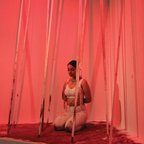
Ngāti Porou, Te Whānau-a-Apanui, Ngāti Kauwhata, Rakahanga (Cook Islands)
Our facilities
You'll have access to a wide range of first-class facilities when you study with us.
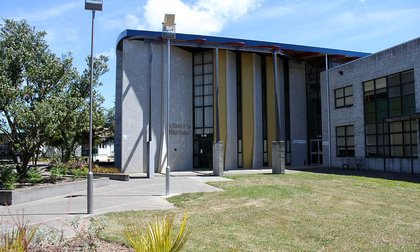
Te Pūtahi-a-Toi
Te Pūtahi-a-Toi - School of Māori Knowledge has a rūnanga room and a wharekai – Toi Te Ora – where we can manaaki visitors, students and staff.
Location: Manawatū campus
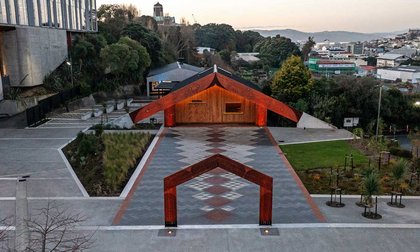
Te Rau Karamu Marae
Te Rau Karamu Marae provides stunning art-filled learning and teaching spaces and sits at the heart of the Wellington campus.
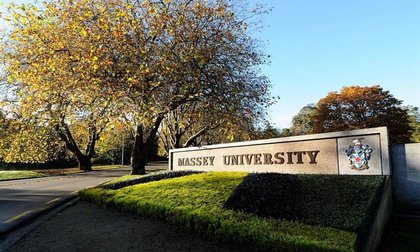
Te Whare Taupua
The Māori space on our Auckland campus. Te Whare Taupua is home to Te Rau Tauawhi, the Māori student support centre. While it's mostly a student space, it's also used for Māori events.

Centre for Indigenous Psychologies
The centre is an inclusive physical and intellectual space.
Through our teaching and research, indigenous psychologies are embraced, experienced, understood and developed – in ways to benefit all communities.
Location: Manawatū campus
Jobs linked to Māori knowledge
Specialising in Māori knowledge is a great pathway to careers in a range of areas, including:
- business and entrepreneurship
- communications roles in government or businesses, publishing or the media
- community work
- creative arts
- healthcare
- foreign affairs
- Māori development
- policy analysis
- research
- teaching te reo Māori and te ao Māori in kura, schools or universities
- translation services.
Annual salary ranges for jobs
Examples of jobs linked to Māori knowledge:
- Agricultural and horticultural consultant – $70,000 to $122,000
- Communications professional – $65,000 to $113,000
- Curator – $61,000 to $101,000
- Dietician – $87,000 to $107,000
- Economist – $79,000 to $163,000
- Lecturer – $106,000 to $128,000
- Policy analyst – $78,000 to $131,000
- Pouako Māori medium teacher – $56,000 to $82,000
- Public health officer – $72,000 to $102,000
- Social worker – $87,000 to $107,000
Salary ranges disclaimer
Indicative pay rates are:
- in New Zealand dollars
- based on Tahatū Career Navigator website data.
Which Māori knowledge qualification?
Examples of where our qualifications may take you.
| Qualifications | Jobs |
|---|---|
|
Bachelor of Arts (Māori Studies) Bachelor of Arts (Te Reo Māori) |
Advocate, consultant or policy analyst |
|
Bachelor of Arts (Māori Studies) Bachelor of Arts (Te Reo Māori) |
Communications roles |
| Bachelor of Arts (Te Reo Māori) | Interpreter or translator |
| Bachelor of Māori Visual Arts | Artist |
| Master of Health Science (Māori Health) | Advocate, consultant or policy analyst specialising in Māori education or health |
|
Master of Health Science (Māori Health) Postgraduate Diploma in Health Science (Māori Health) |
Health professional working with Māori |
|
Postgraduate Diploma in Māori Visual Arts Postgraduate Diploma in Museum Studies |
Curator |
| Te Aho Tātairangi: Bachelor of Teaching and Learning Kura Kaupapa Māori | Kaiwhakaako Māori |
Get an information guide
Download our guide to find out more about studying Māori knowledge at Massey.
Download other guides that may be of interest.
